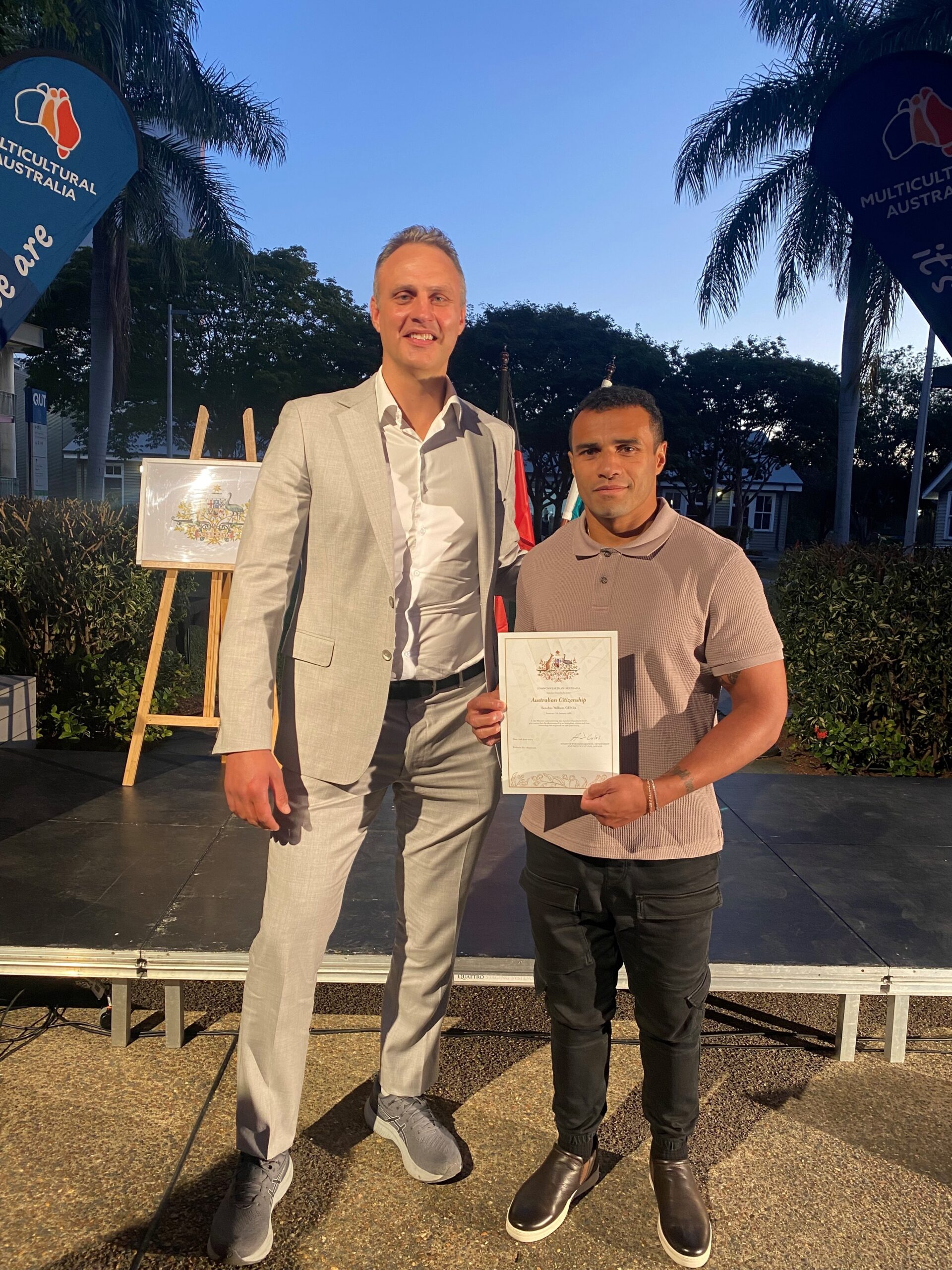So, you applied for Australian citizenship and the Department of Home Affairs made a decision to refuse your application. What are your options to do next? Can you appeal the refusal decision? Are you able to apply again? If so, will the decision be different the second time? Or will the Department of Home Affairs simply keep refusing your application for the same reasons?
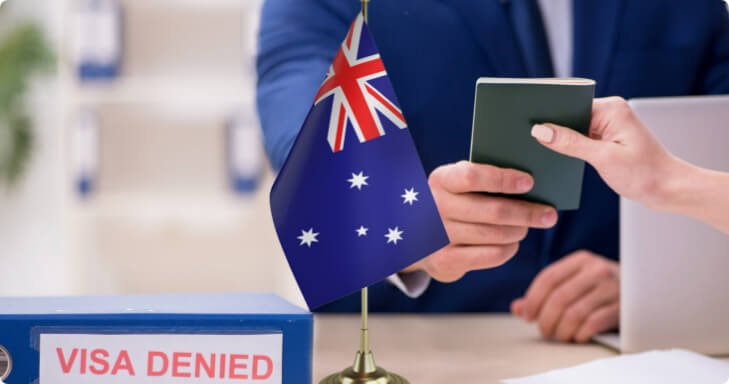
The first question to ask is, why was the citizenship application refused? It’s important to seek legal advice to check the reasons for the refusal and to understand what your options may be.
Alternatively, you may have received a request for further information from the Department of Home Affairs, asking you for further information about your citizenship application which is processing.
Depending on the reasons for refusal, your options could include:
- Apply to the Administrative Appeals Tribunal (AAT) for a review of the citizenship refusal decision;
- Court appeal;
- Submit a new citizenship application.
Why was my citizenship application refused?
If your citizenship application has been refused, you would have received a letter from the Department of Home Affairs informing you of the decision and the reasons for the refusal.
Check the reasons for the refusal in the letter from the Department of Home Affairs carefully. This will give you an insight as to reasons why the citizenship application was refused, and what your options may be from here.
Note that there may be a timeframe deadline to take your next steps.
If you contact Visa & Citizenship Lawyers, we can carefully assess the reasons for refusal and present to you your options. Note that you should contact our team as soon as you have received notification that your citizenship application has been refused as there is a strict timeframe to appeal the decision.
3 reasons why citizenship application are refused:
- You did not meet the General Residence Requirement.
- You did not meet character requirements.
- Your identity was not confirmed,
1.You did not meet the General Residence Requirement
A number of citizenship applications are refused because the Department of Home Affairs determine that the applicant does not meet the General Residence Requirement.
What is the General Residence Requirement?
If you meet all of the criteria below, you meet the General Residence Requirement.
- You were physically living in Australia for the last 4 years before the date of your citizenship application, and
- During those 4 years, you were not an unlawful non-citizen, and
- During those 4 years, you were not in prison, or in a psychiatric institution, by order of a court made in relation to criminal proceedings in an Australian court, and
- During those 4 years, you were a permanent residence for a consecutive period of 12 months before the date of your citizenship application, and
- During those 4 years, you were not overseas for more than 356 days cumulatively, and
- During the last 12 months before the date of your citizenship application, you were not overseas for more than 90 days cumulatively.
For criteria 4, you will need to know the date that you were granted an Australian permanent visa. You must have held permanent residence for an ongoing period of 12 months before the date of the citizenship application.
For criteria 5, you will need to know your travel history. Count the days that you were overseas in the last 4 years. If the days that you were overseas adds up to 356 days or more, you may not meet the General Residence Requirement and will need to contact our friendly team to see if one of the exceptions may apply to your circumstances.
The same goes for criteria 6. If you’ve been overseas in the last 12 months, and the days you were overseas add up to 90 days or more, you may not meet the General Residence Requirement.
If your Australian citizenship application has been refused due to not meeting the General Residence Requirement, contact our experienced team today to explore your options.
Client Case Study
Regan, a 35-year-old citizen of Ireland and permanent resident of Australia since 2018, had “the travel bug” – that is, he absolutely loved to travel and explore new places and cultures. He had explored most of Europe already when he was in his twenties. He loved that Australia was located close to the Pacific Islands, and had visited Tonga, Vanuatu, and Fiji in February, October, and December of 2019 respectively. A big fan of the Lord of the Rings trilogy, he had also visited New Zealand in January 2020 for two weeks.
In February 2022, Regan embarked on a whirlwind trip around the Asian continent. He had been dying to see Asia but hadn’t been able to do so due to the COVID-19 pandemic. He began his trip exploring the wonders of South-East Asia, beginning with a month exploring the Indonesia archipelago, then a few days in Singapore, Malaysia, Brunei, and then two months exploring Thailand, Cambodia, Myanmar, Vietnam and Laos.
Regan’s best friend Harry was soon to wed, and he wanted to have a pre-wedding celebration in Las Vegas with just his mates, a week before tying the knot on Christmas Eve of 2022. Regan was extremely excited to make special memories with his best friends. However, Regan also wanted to apply for Australian citizenship soon, in January 2023 if possible. He wasn’t sure if he would meet the criteria for Australian citizenship. To top it off, he wasn’t sure of his own visa history, as his email address had been hacked some time ago. Feeling uneasy, and not wanting to risk a citizenship application refusal, he contacted Visa & Citizenship Lawyers for a consultation.
We assessed his eligibility for citizenship. After checking his movement records, all his correspondence with the Department of Home Affairs, examining the entry and exit stamps on his passport, and the dates of his more recent travel itineraries sent to him to his new email address, we were able to establish that Regan had already been outside Australia for 82 days in the past 12 months. Further, he had not been outside for more than a total of 365 days in the past 4 years. He, at the time of the Visa & Citizenship Lawyers initial consultation, met the General Residence Requirement.
However, if he were to travel to Las Vegas for an additional 9 days in December 2021, he would go over the 90-day limit.
Regan wanted to know when it would be best for him to apply for citizenship. After some discussion, we advised that if he lodged his citizenship application on a later date, for example the last day of February 2022, and he did not undertake any further overseas travel before this date, he would not have been outside of Australia for more an 90 days in the 12 months immediately before the citizenship application (that is, between 28 February 2021 and 28 February 2022) and would therefore meet the General Residence Requirement.
Regan was able to attend Harry’s pre-wedding celebration (and of course, the wedding itself) and, with the help of Visa & Citizenship Lawyers, apply for citizenship on 28 February 2022. As he met the General Residence Requirement and other eligibility criteria, and passed the citizenship test, he became an Australian citizen 1 June 2022.
Regan
I don’t meet the General Residence Requirement. Are there any exceptions?

So, you don’t appear to meet the General Residence Requirement. Maybe you’ve undertaken too much travel recently, or you were unlawful for a few days in the past 4 years.
There are still options available for you. You could:
- Request a Ministerial discretion, or
- Show that you meet Special Residence Requirements.
You could still be eligible for Australian citizenship. Contact our experienced team today to see if an exception may apply to your circumstances.
Ministerial Discretions
Requesting a Ministerial discretion is like asking for the Minister to consider your special circumstances. The Department of Home Affairs may decide to grant citizenship if:
- There was an administrative error which caused you to be unlawful;
- There was an administrative error which resulted in you not being a permanent resident;
- You were in prison, or a psychiatric institution, as a result of criminal proceedings, and the conviction was quashed, or you were pardoned;
You would suffer significant hardship; or - If you are the spouse or de facto partner of an Australian citizen, and you have a close and continuing association with Australia.
You could still be eligible for Australian citizenship. Contact our experienced team today to see if an exception may apply to your circumstances.
There was an administrative error which caused you to be unlawful
You have never intended to overstay your visa, and throughout your entire life in Australia you have always been careful to apply for further visas ahead of time, well before the date of expiry of your current visa.
However, due to administrative error by the Department of Home Affairs, you discover that you were actually in Australia as an unlawful non-citizen for a few days. There was nothing that you could do except wait for the Department of Home Affairs to fix things on their end regarding your status.
In situations of administrative error, you could request a Ministerial discretion to treat the period that you were unlawful as one where you were lawful.
Client Case Study
It all started in June 2020. After completing her Cert II in Kitchen Operations at TAFE NSW, Susan, a citizen of China, (25) wanted to further her learning and enrolled in a Cert III in Commercial Cookery at Le Cordon Bleu, Sydney. The new term would begin at the end of July 2020.
Her current student visa was expiring on 28 July 2020. On the night of 26 July 2020, Susan applied for a new student visa with a new Confirmation of Enrolment from Le Cordon Bleu. On the night she applied for the new student visa, her ImmiAccount showed that the application was on status “Submitted”. She didn’t receive any acknowledgement letters or bridging visa grant notifications that night. She decided to wait until the next day.
On 27 July 2020, Susan called the Department of Home Affairs. The person on the phone told her that they will look into it, and that an associated Bridging visa should be granted soon. A few days later, the Bridging visa A was granted.
Fast-forward two years – it is now July 2022. Susan had been granted permanent residency the year prior, and after checking the General Residence Requirement, she made an application for Australian citizenship.
However, it got refused because she did not meet the following criteria: “the person was not present in Australia as an unlawful non-citizen at any time during that 4-year period”.
She called Visa & Citizenship Lawyers, who assessed the reasons for the citizenship application refusal. An experienced immigration lawyer explained that her student visa expired on 28 July 2020, and that as no acknowledgement email or Bridging Visa A notification was received on the 28th July, it appeared that there may have been an administrative error that saw her unlawful for a couple of days.
Visa & Citizenship Lawyers requested Departmental notes and files to examine whether the period of unlawfulness was due to an administrative error. The experienced immigration lawyers found that she had made a valid application on 26 July 2020 and advised Susan that a new citizenship application could be granted requesting Ministerial discretion. A new citizenship application requesting a ministerial discretion was lodged. Susan was granted citizenship about 8 months later.
Susan
If you believe that your Australian citizenship application was, or may be, affected by administrative error, contact our experienced team today.
There was an administrative error which resulted in you not being a permanent resident

Similar to the above scenario, if there was an administrative error that resulted in your permanent residence ceasing, you could request a Ministerial discretion to be granted citizenship.
Client Case Study
Horace, a citizen of Sierra Leone (45), held a permanent Resident Return visa. While overseas, Horace’s realised that the travel facility on his permanent visa was close to expiring, and he wasn’t sure of the exact date that he would return to Australia. Unsure about when, or indeed, whether he could enter Australia, he called the Department of Home Affairs. Bryan, an officer of the Department of Home Affairs, told him that he must apply for a Visitor visa to enter Australia. He applied for and was granted a Visitor (subclass 600) visa.
Horace arrived in Australia as a Visitor. He was under the impression that whilst the Visitor visa would enable him to re-enter Australia, he never lost his permanent residence. However, this information was wrong. Since the Visitor visa replaced his permanent visa, he was no longer a permanent resident.
As soon as arrived in Australia he spoke to Visa & Citizenship Lawyers about applying for citizenship. He showed the immigration lawyer his permanent visa grant, but a VEVO Check showed that he was no longer holding a permanent visa. Horace was shocked. He had received incorrect advice from an officer of the Department.
As soon as he understood this, he engaged Visa & Citizenship Lawyers to lodge a Resident Return visa so that he could become a permanent resident again. After this, Visa & Citizenship Lawyers investigated his visa history further, by lodging a request for Departmental files and notes in relation to his Visitor visa application. After collecting documentary evidence of the administrative error, Visa & Citizenship lodged a citizenship application requesting a Ministerial discretion. Horace’s citizenship application was approved 9 months later.
Horace
If you believe that your Australian citizenship application was, or may be, affected by administrative error, contact our experienced team today.
You were in prison, or a psychiatric institution, as a result of criminal proceedings, and the conviction was quashed, or you were pardoned

If you have been in prison, or in a psychiatric institution, during the 4 years immediately before your citizenship application, the 4-year residency period will commence from the day that you were released from prison, or the psychiatric institution.
However, if the conviction was quashed, or you were pardoned, and it would be unreasonable for the General Residence Requirement to apply, the period that you spend in prison, or the psychiatric institution could be disregarded.
Client Case Study
Serg, a citizen of Italy (38) and a permanent resident of Australia for around 10 years, found himself regularly in trouble when he was in his youth. So did his identical twin brother, James (38). For much of their lives, Serg and James were unemployed, doing odd jobs for cash. When Serg turned 30, he got a job at the local council in the parks and recreation department. He found that he really enjoyed administrative work, and also started a course in town planning. James, on the other hand, joined an outlaw motorcycle club.
When James and Serg met up for dinner one day, James told Serg he was going to the toilet. James didn’t come back for over 40 minutes. Then, two police officers approached Serg and arrested him.
Serg was shocked to find out that there were hundreds of transactions, made to accounts of motorcycle club members, from an account under his name. He had never opened the bank account. The transactions were linked to the illegal sale and purchase of drugs and arms.
Serg was in custody for a total of 1 year for a crime that he did not commit. With the help of his criminal lawyer all convictions were quashed, and he was offered compensation for the wrongful conviction.
Three years later, Serg decided he wanted to try applying for a job in the Australian public service. He needed to be an Australian citizen in order to do so, so he applied for citizenship. However, the application was refused.
Serg sought legal advice from Visa & Citizenship Lawyers on what he could do next.
Visa & Citizenship Lawyers drafted a Statutory Declaration with all supporting documents showing the quashed conviction, as well as evidence of his good character. By showing his life story and establishing reasons why it would be unreasonable to apply the General Residence Requirement. Visa & Citizenship Lawyers lodged Serg’s strongest application. After consideration from the Department, the Department of Home Affairs used their discretion and approved Serg’s citizenship application about 10 months later.
Serg
If you have been wrongfully imprisoned, and you wish to become an Australian citizen, contact our experienced team today.
You would suffer significant hardship, detriment, or disadvantage

Australian citizenship offers certain benefits and advantages.
To apply for this particular Ministerial discretion, it’s important to show that you would be in a situation where, if you are not granted Australian citizenship, you will suffer from significant hardship, detriment, or disadvantage. It’s not enough to show that you will not receive a certain advantage, benefit, or privilege because you are not an Australian citizen.
Client Case Study
Selina, 23, a citizen of Japan, first entered Australia on a student visa as a secondary school student. She
attended a prestigious private school. When she graduated from Year 12, she wished to study a Bachelor of Medicine at the University of Newcastle. However, fees for international students were very high – over $360,000 – and her parents, who were residing in Japan, did not want to fund her studies.
Selina decided to take another visa pathway. She studied a Bachelor of Allied Health degree instead, and eventually became a permanent resident. After 12 months of permanent residency, she applied for Australian citizenship in 2022. Her plan was to study a Medicine degree at the University of Queensland and apply for a HECS-HELP loan to pay for her studied.
However, she miscalculated the dates that she was present in Australia and had not taken into account a year-long gap year after graduating high school in 2018, which meant that she did not meet the General Residence Requirement.
Selina approached Visa & Citizenship Lawyers, saying that her dreams to become a doctor were crushed. An experienced immigration lawyer took this into consideration; however, they assessed that the application is likely to be refused. According to Departmental policy, it is not Australian citizenship that is required to study a Medicine degree, but rather, Australian citizenship could make her eligible for HECS-HELP that would make studying a Medicine degree easier.
Visa & Citizenship Lawyers held further consultations with Selina to explore further citizenship options. They found that Selina could potentially meet other eligibility criteria for a Ministerial discretion, on the basis that she was the de facto partner of an Australian citizen.
Selina
If you believe that you would suffer significant hardship, detriment, or disadvantages if you do not become an Australian citizen, contact our experienced team today to discuss.
If you are the spouse or de facto partner of an Australian citizen, and you have a close and continuing association with Australia.

So you have counted the days that you were overseas in the last 4 years and find that you do not meet the General Residence Requirement because you have exceeded the number of allowable absences from Australia.
If you are the spouse or de facto partner of an Australian citizen, or the surviving spouse or de facto partner of an Australian citizen (and they are now deceased), you could request a ministerial discretion so that those periods of absences could be treated as a period where you were in Australia.
You will need to show that:
- You were a spouse or de facto partner of an Australian citizen during that period;
- You were a permanent resident during that period;
- You have a close and continuing association with Australia during that period.
A close and continuing association with Australia would show that your frequent or prolonged absences from Australia were not intended to be permanent or ongoing.
For example, you may have substantial employment ties could include:
- ongoing work in Australia
- employment at an Australian organisation that is located outside of Australia
These ties would indicate that you are required to continue living in Australia, and that any overseas trips are likely not to be permanent.
You may have business ties that make any long-term stays in Australia difficult, such as business activity in Australia or in another country that:
- generates revenue to Australia
- creates employment for Australians
- manufactures goods or provides services in Australia
- provides a connection between Australia and its trade partners
- introduces new technology or knowledge to Australia
- exports Australian goods, services, or knowledge and technology
- makes significant investments in Australia
You could include evidence such as e-mails, letters of support, or contracts showing your continuing business in Australia.
Personal & cultural ties could include:
- immediate family, or members of your family unit, residing permanent in Australia
- personal assets in Australia, such as residential or investment property
- a long history of residence in Australia
- substantial community involvement in Australia, such as in the Arts or a sports group
To prove your personal and cultural ties, evidence such as ownership of assets in Australia, proof of family in Australia (such as Australian citizen children) can be added to your application.
Client Case Study
Nana, a citizen of China and a permanent resident of Australia, had discovered a niche market in China – Australian milk tablets. Her new product, marketed as high in calcium and vitamin D, was in extremely high demand, and she was making multiple trips to Shanghai, Beijing, Guangzhou, and more recently, Harbin and Xinjiang, where the supply of dairy products was low but the demand for premium health goods were high.
Nana did not meet the General Residence Requirement, because she had travelled so frequently over the years. She would never be able to meet the General Residence Requirement because her work required her to go overseas almost every month.
However, she had a wife and kids in Australia that she was supporting, and she had always considered Australia to be her home.
She engaged Visa & Citizenship Lawyers to build a strong case for requesting a Ministerial discretion to be able to obtain citizenship. Visa & Citizenship Lawyers drafted a Statutory Declaration taking into account all of her business, self-employment, and personal ties to Australia. Visa & Citizenship Lawyers also attached evidence such as the company bank statement showing transactions flowing into her Australian account, Business Activity Statements from her accountant, and statements from key members of the Queensland Chinese-Australian Business Council confirming that she is a dedicated member of their community. She also provided evidence of her family ties in Australia.
Nana’s citizenship application was approved around 10 months later.
Nana
If you are a frequent traveller, and you want to apply for Australian citizenship, contact our experienced team today.
Special Residence Requirements

You could still be eligible for Australian citizenship, even if you don’t meet the General Residence Requirement and cannot request Ministerial discretion.
You could be eligible for Australian citizenship if you meet:
- The Defence Requirement
- The Special Residence Requirements
The Defence Requirement
If you do not meet the Resident Requirement, you could meet the Defence Requirement.
You meet the Defence requirement if you, or a member of your family unit:
You could be eligible for Australian citizenship if you meet:
- served in the Permanent Navy, the Regular Army or the Permanent Air Force for a total of 90 days (the days do not need to be consecutive).
- served (that is, you were required for, attended and were entitled to payment for service) in the Naval Reserve, the Army Reserve, or the Air Force Reserve, for a total of 90 days (the days do not need to be consecutive)
Note that the number of days of service in the Army Reserve includes only those days where you were called upon, attended, and entitled to be paid for service.
You will need documentary evidence supporting this, such as written confirmation, discharge papers, or a letter of support from a commanding officer.
You can still apply for Australian citizenship if you were discharged before completing 3 months’ service on grounds that you were injured or ill as a result of serving. You must provide evidence that you became medically unfit for service because of your Australian defence service.
The Special Residence Requirement
You may be granted citizenship on the grounds that you require Australian citizenship in order to engage in an activity that will be of benefit to Australia.
This includes:
- Representing Australia in major international sports events such as the Olympics, Paralympics, Davis Cup, Commonwealth Games, or international cricket
- Being employed in a high security clearance role by the Australian Commonwealth government
- Being employed in certain positions that would make you eligible for the Special Residence Requirement. This includes but is not limited to:
- a CEO of a S&P ASC All Australian 200 listed company,
- an internationally renowned scientist employed by an Australian university or funded by an Australian Government body,
- a person engaged in work on a resources installation, or sea installation, or
- a member of a crew on a ship or aircraft.
You will need the written support of a higher-up member of the organisation that will be employing you.
You will still need to meet certain residency requirements, namely:
- You must have been present for a total of at least 180 days of the last two years before the date of the application;
- You must have been a permanent resident, ordinarily residing in Australia during those two years;
- You must never have been an unlawful non-citizen during any time in those two years;
- You must have been present in Australia for a total of at least 90 days of the last 12 months before the date of the application.
Under special circumstances, some parts of these residency requirements may be waived, but this is completely to the discretion of the Minister.
Client Case Study
Carla, a citizen of the United States and a permanent resident of Australia (50), applied for citizenship by conferral. She is a doctor. Whilst employed in Australia, Carla travels regularly to attend conferences. She also travels overseas to meet friends and family.
Carla knew that she would not meet the General Residence Requirement, but she believed that she could be granted Australian citizenship based on the Special Residence Requirement based on her expertise as a doctor. She held some important positions on multiple boards and advisory bodies in the medical industry.
Carla came in for an initial consultation with an experienced immigration lawyer at Visa & Citizenship Lawyers, who assessed her eligibility for Australian citizenship based on the Special Residence Requirement. According to Departmental policy, internationally renowned medical specialists who were fellows of certain organisations, holding the required qualifications, could be eligible for Australian citizenship based on the Special Residence Requirement. Carla was a fellow of the Australian and New Zealand College of Anaesthetists. Visa & Citizenship Lawyers prepared a citizenship application addressing the Special Residence Requirement criteria, with documentary evidence of her fellowship with the Australia and New Zealand College of Anaesthetists, and other supporting statements made by those prominent in her field. The citizenship application was approved 10 months later.
Carla
If you believe that you might meet the Special Residence Requirements, contact our experienced team today.
2. You did not meet character requirements
Many citizenship applications that are refused are refused because the Department of Home Affairs determine that the applicant does not pass the “good character” test to become an Australian citizen.
“Good character” does not have a legal definition. Courts and tribunals have referred to the meaning of “good character” as “the enduring moral qualities of a person”.
We highly recommend that you get help from an experienced immigration lawyer if you are applying for citizenship, and you have:
- any criminal convictions or charges in any country, however minor;
- received a sentence in any country;
- had a visa cancelled or refused;
- overstayed your visa in Australia or any other country;
- been in immigration detention;
- provided false or incorrect answers in any previous visa or citizenship application forms;
- any debts owing to the Australian government; or
- any other circumstances where you do not feel certain that your application for Australian citizenship would be approved due to character issues.
Even if it occurred in the past, you are required to make a full disclosure in your citizenship application. This is especially true for any criminal convictions or sentences you may have committed, not only in Australia but in any other country.
The Department of Home Affairs will make a holistic, objective assessment based on the following:
- whether the applicant has committed any crimes of any nature in any country;
- if they have committed a crime, whether they acknowledge their actions and distinguish from right and wrong;
- whether their actions have hurt others;
- whether the offences are serious, or repeated;
- whether they have taken steps to reform their ways;
whether they have had a previous visa cancellation; - whether they have ever supplied bogus or fraudulent documents; and
- any other relevant matter.
If your citizenship application has been refused because it is determined that you do not meet the character requirements, our team can assess your circumstances carefully and advise you as to your options. Contact our experienced team today.
I have a criminal record. Can I still apply for Australian Citizenship?
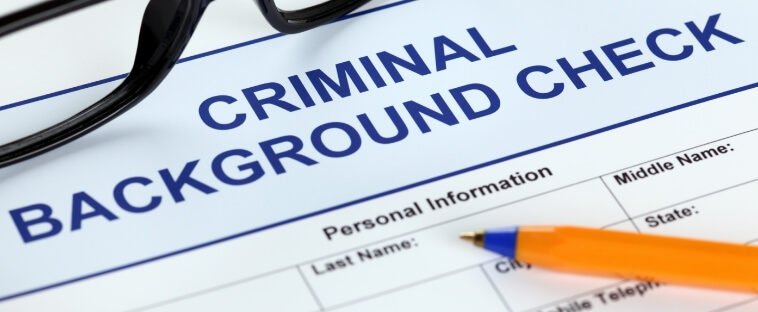
Although you may have been convicted of an offence, the Department of Home Affairs may still find that you are of good character depending on your circumstances, for example:
- A significant period of time may have passed since the conviction;
- The offence was not serious, or does not indicate a pattern of criminal behaviour;
- The circumstances surrounding the offence may indicate that the conviction was completely out of character; or
- The circumstances of the visa cancellation do not indicate contempt of the rules and laws of Australia.
Examples of evidence that could be supplied to confirm your claims that you are of good character can include:
- Independent character references;
- Psychological assessments; and
- Documents showing a change in lifestyle;
- Statutory Declaration from you (we can assist you with this);
- Submissions from us setting out how you meet the eligibility requirements.
It is important to make a full and frank disclosure in the citizenship application. Making a disclosure will not necessarily mean that the application will be refused.
Police certificates from countries that you have lived in must be provided.
Our team at Visa & Citizenship Lawyers can help you prepare and lodge a citizenship application addressing your past criminal history.
Client Case Study
Jaspreet, a citizen of the United Kingdom and a permanent resident of Australia (aged 36), had been living in Australia ever since he was 29. While living in Australia, he founded a start-up business in Australia in the construction industry, which was very successful and continuing to grow every day. He married an Australian citizen, and between them they had two wonderful daughters. All his family members were Australian citizens.
Having not travelled or lived outside of Australia for any extended periods of time, he decided it was time for him to become an Australian citizen himself. First, he did a quick search on Google on how to apply for Australian citizenship and found that he easily met the General Residence Requirement. He wasted no time and made
an application for Australian citizenship, which he lodged via his own ImmiAccount. A few months later, he was invited for an interview at the Sydney City office where he also took the Australian citizenship test, which he passed. All his identity documents were also sound.
A few months after making the application, he received a section 56 request Form information letter from the Department of Home Affairs. The letter requested further information on spent conviction in the United Kingdom relating to five traffic offences he had committed in the UK many years ago. He had just 28 days to respond.
Jaspreet did not know how to respond to the request. He contacted Visa & Citizenship Lawyers for advice and his options were discussed during a consultation with one of our experienced immigration lawyers. Jaspreet decided to engage Visa & Citizenship Lawyers and his matter was prioritised as he only had a few days until the deadline to respond to the request.
His criminal convictions, and the related sentence for each one, were carefully set out by our experienced immigration lawyers on a Statutory Declaration, along with supporting documents referenced and attached. Reasons for his non-disclosure, and why he should pass the character test at this point in time, were also included. Visa & Citizenship Lawyers also contacted five people who knew Jaspreet well to provided signed statements declaring that Jaspreet was indeed a person of good character. Visa & Citizenship Lawyers also provided their own legal submissions to strengthen the citizenship application.
A few weeks later, Jaspreet received notice that his Australian citizenship application was approved, and he became an Australian citizen, just like the rest of his family.
Jaspreet
I had a visa cancelled. Can I still apply for Australian citizenship?

You could still be eligible for Australian citizenship even if you have had a previous visa cancellation. It depends on the circumstances of the cancellation and building a strong case for why your citizenship application should be approved.
Client Case Study
Khan is a citizen of Mongolia and is 26 years old. He held Australian permanent residency for the past 5 years and has not left Australia since 2019. He meets the General Resident Requirement. He seeks to apply to citizenship but is concerned about two things:
- When Khan was 17, he was a dependent on his father’s temporary visa. However, his father committed a serious crime and had the visa cancelled on character grounds. As such, Khan’s visa was also cancelled;
- Khan was convicted of some shoplifting offences he committed when he was 16.
Khan is concerned that he may not be able to apply citizenship. He contacted Visa & Citizenship Lawyers for a consultation and further professional assistance with his citizenship application.
In relation to Khan’s previous visa cancellation, an experienced immigration lawyer interviewed Khan and carefully drafted a Statutory Declaration explaining the reasons and circumstances surrounding his visa cancellation. The Statutory Declaration made it clear that Khan’s visa cancellation was a result of his father’s bad character, and therefore it should not be considered an indication of the character of Khan himself.
Secondly, in relation to his shoplifting offence, it had been a long time since his past criminal conduct. In the interview with Khan, an experienced immigration lawyer went through what steps he had taken to better himself as a person, such as counselling, and providing signed statements from people who know him in his community, like his employer and colleagues, to show major reform.
Khan
3. Your identity was not confirmed

If the Department of Home Affairs are not satisfied of your identity, they will refuse your citizenship application.
To prove your identity, you could provide as many of the following documents as
you have:
- Birth certificate
- Passport (both current and expired. Even expired passports are useful to show your identity, and demonstrate your past visa history)
- Driver Licences
- Student cards
- Family register documents.
The identity documents required could be issued in Australia, or overseas.
Sometimes, especially in the case of those who arrived in Australia on humanitarian or asylum seeker grounds, it is difficult to procure official identification documents.
The Department of Home Affairs relies on biometrics (such as fingerprinting and photographs of your face). A photo may have been captured at your interview or citizenship test appointment, and at the airport when you have departed or entered Australia.
A person’s “life story” or “social footprint” also forms part of their identity. If the Department of Home Affairs finds any inconsistencies in your life story during the interview process, or whilst processing any documents they hold from your past dealings with the Department of Home Affairs, they may not be satisfied of your identity.
For example, if you do not disclose any changes of name that you had in the past, the Department of Home Affairs may not be certain of your identity.
It is important to ensure that all the information that you provide to the document is accurate and in full, to avoid delays or potential refusals.
Client Case Study
Afridi, a citizen of Afghanistan, arrived in Australia on a boat seeking asylum due to the dire situation in her home country. She was granted a humanitarian visa which granted permanent residency. She does not know when she was born, as she was never provided a birth certificate, but her mother has always told her that she was born on 8 August 1998. She only had one document, a Taskera, in digital form. The Taskera has her name at birth, but she never used that name, as her parents always called her “Afridi”. She does not have a passport. She currently only holds an ImmiCard and Australian drivers licence.
Afridi had been living in Australia for 6 years and had not travelled overseas since. She applied for citizenship, but it was refused because the Department of Home Affairs could not establish her identity.
She contacted Visa & Citizenship Lawyers for legal advice, and her options moving forward. After reviewing all her documents (including her dealings with the Australian Border Force), conducting country-specific research, and exploring all avenues to procure identity documents, an experienced immigration lawyer worked with Afridi to prepare and lodge a new citizenship application for her carefully addressing the identity issues.
The application was granted, and Afridi is now an Australian citizen. She could now apply for an Australian passport. More importantly, she is free from persecution and could potentially lodge visas to get her family members to migrate to Australia as well.
Khan
If your Australian citizenship application has been refused on identity grounds, contact our experience team of lawyers today.
Tribunal Appeal

If Department of Home Affairs refuses your application for Australian citizenship, you have the option of appealing the decision to the Administrative Appeals Tribunal.
One of the benefits of having your matter reviewed at the Tribunal is that the Tribunal is not a part of the Department of Home Affairs, who refused the citizenship application. The Tribunal is independent to the Department of Home Affairs and has the power to view the application from a new perspective, or with a “fresh” set of eyes.
The Tribunal has strict time limitations and if you do not lodge a review application with the Tribunal in time, it will be what is known as an ‘invalid application’. If it is an invalid application, you will have no review rights at the Tribunal. The letter informing you of your refusal will let you know how many days you have to make an appeal.
If the Tribunal believes that the decision to refuse the citizenship application was incorrect, they can set aside the decision to refuse the application and make a new decision.
There are fees to apply to the Administrative Appeals Tribunal, and the process may be complicated and lengthy.
Client Case Study
Nessie, a citizen of Papua New Guinea, was born in Papua New Guinea in 1975. Her mother was a citizen of Papua New Guinea, and her father was an indigenous Australian living in Papua New Guinea. They are both deceased.
She was advised by a migration agent that she could apply for Australian citizenship because one of her parents were an Australian citizen at the time of her birth. She made her application for citizenship by descent. However, the application was refused.
Nessie contacted Visa & Citizenship Lawyers for legal advice. Importantly, she felt wronged by the Department of Home Affairs. She didn’t understand why her application for Australian citizenship was refused, especially when her father was an indigenous Australian.
Visa & Citizenship Lawyers worked with her closely and created a chronology of her family tree, supported by documentary and historical evidence. An experienced immigration solicitor represented her at the Administrative Appeals Tribunal.
The Tribunal affirmed that Nessie’s father was indeed an Australian citizen at the time of her birth. The Tribunal set the decision aside to refuse Nessie’s application for Australian citizenship and remit the decision to reconsideration.
A few weeks later, Nessie received her Australian Citizenship certificate.
Nessie
If you need representation at the Administrative Appeals Tribunal, contact our experienced team today.
Court Appeal
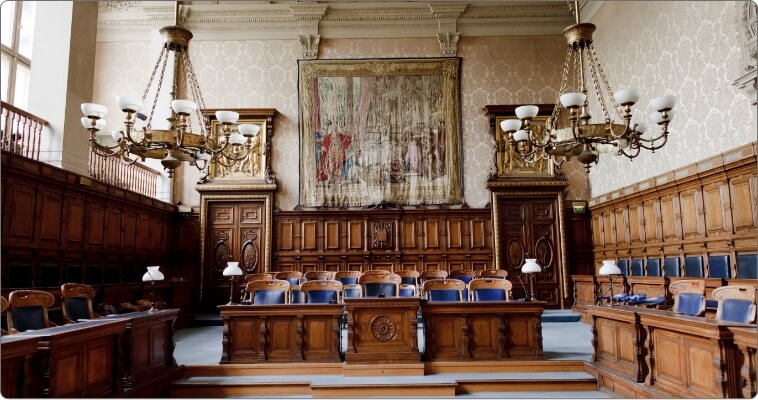
If your citizenship application has been refused by the Department of Home Affairs, and the Administrative Appeals Tribunal (Tribunal) has upheld the refusal decision, you may be able to appeal the Tribunal decision in the Courts.
The Court has the power to determine if there has been jurisdictional error and order the Tribunal to set aside the decision, and to make a new decision.
Visa & Citizenship Lawyers assist people who have had their citizenship applications refused with representation at Court. Our assistance includes planning and preparing for the Court hearing as well as representation on the day of the Court hearing.
Client Case Study
Jang’s mother, a South Korean national, met Jang’s father, a national of Russia, in Australia while they were both studying at the Australian National University while on student visas in 2000. In the same year, Jang was born. As she was the child of two temporary visa holders she was not granted Australian citizenship at the time of her birth. The relationship between Jang’s parents broke down irretrievably in 2003 and Jang lived with her mother only (Jang’s father returned to Russia after his studies). Jang’s mother was able to remain in Australia by pursuing further studies and applying for a work visa.
In 2009, Jang’s grandmother, who lived in South Korea, fell critically ill. Jang’s mother decided to return to South Korea, at least for the short-term. For the first time, Jang entered South Korea at the age of 9.
Jang found adjusting to life in South Korea to be very difficult. She didn’t know the language, she didn’t understand the culture, and she missed her friends in Australia. When Jang’s grandmother passed away, Jang and her mother re-entered Australia in 2010. Jang enrolled in a school in Sydney and continued her education until she completed her high school certificate in 2019. She wanted to study Medicine at the University of New South Wales, but tuition fees were too expensive.
A migration agent advised her that Jang didn’t need to pay any tertiary fees upfront because she was actually an Australian citizen as she had been living in Australia for over 10 years. Indeed, the Australian Citizenship Act provided that a person who had been ordinarily resident in Australia for 10 years since date of their birth would be granted Australian citizenship automatically.
Jang requested from the Department of Home Affairs an Australian Citizenship certificate to send to the University of New South Wales. She wanted to study as a domestic student, not as an international student. However, the Department of Home Affairs decided that she was not an Australian citizen and did not provide her with an Australian Citizenship certificate. She appealed the decision at the Administrative Appeals Tribunal, but the Tribunal affirmed the Department’s decision.
Jang approached Visa & Citizenship Lawyers seeking advice. Visa & Citizenship Lawyers listened to the story of her birth in Australia, her visa history, Jang’s mother’s visa history, and her integration into the Australian community throughout the 10 years since the date of birth. By providing documentary evidence of her integration into Australian society, as well as evidence showing that Jang and her mother fully intended to live in Australia permanently, Visa & Citizenship Lawyers was able to establish that the Tribunal had erred in their decision by failing to take into account mandatory relative considerations. The matter was remitted back to the Tribunal for reconsideration, who then found favourably for the applicant. The Tribunal then remitted the application back to the Department of Home Affairs, who then granted Jang Australian citizenship.
Jang
If your citizenship refusal decision has been upheld by the Tribunal, contact our experienced team today.
Submitting a New Citizenship Application
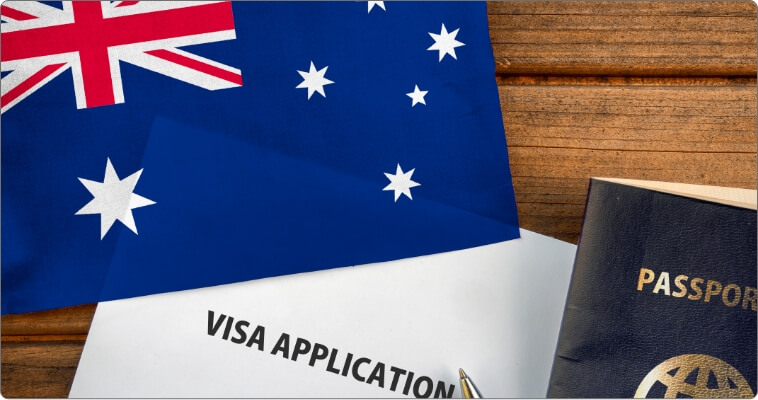
If your citizenship application has been refused, an option for you may be to apply for a new citizenship application. This is where Visa & Citizenship Lawyers can help you, as we assist many people preparing and lodging citizenship applications.
You do not need to wait a certain time period before applying for citizenship again,
but you should check carefully whether you meet the eligibility criteria before applying again.
Contact our team for assistance, as we’d be happy to help.
Client Case Study
Hu, a citizen of China (35), applied for Australian citizenship by conferral in 2018. He was an Australian permanent resident living in Melbourne for 8 years. He had been working almost every day at a busy Chinese restaurant as a chef and had no time to go overseas. As such, he met the General Residence Requirement.
Hu had lodged the citizenship application with the help of his 14-year-old daughter. Whilst his English was definitely of working proficiency, his daughter was much more fluent, having spent most of her life in Australia. Hu relied heavily on his daughter for anything that required him to read or write English.
Hu had not disclosed in his application for Australian citizenship that he was found guilty of the offence of driving while intoxicated in 2009. He received a letter from the Department of Home Affairs asking him for an explanation of the circumstances surrounding these offences. He was too ashamed to tell his daughter about the letter, so he did not respond to the Department of Home Affairs. About two months later, he received another letter from the Department of Home Affairs informing him that his application for Australian citizenship was refused.
Hu realised the gravity of his situation and approached Visa & Citizenship Lawyers for legal advice. After an assessment of his circumstances, he was advised that he could apply for citizenship again. Visa & Citizenship Lawyers lodged a new citizenship application on his behalf, this time disclosing the previous offence, with a Statutory Declaration explaining why it was not disclosed in his previous application. All correspondence from the Department of Home Affairs was handled by an experienced immigration lawyer on Hu’s behalf. Hu was informed of all updates from the Department of Home Affairs.
A year later, Hu’s citizenship application was finally approved. His daughter, who was included in his citizenship application, was also granted Australian citizenship by conferral.
Hu
If you need assistance with lodging a new application for Australian citizenship, contact our experienced team today to ensure that your strongest application is put forward.
How Visa & Citizenship Lawyers can help
If your citizenship application has been refused, the first step for us to help you is for one of our experienced immigration lawyers to carefully assess your circumstances to determine your options through our consultation service which are $360 (plus GST if applicable).
A guide to our professional fees for ongoing work after a citizenship refusal:
- From $2,490 (plus GST if applicable) for a citizenship application for a person who has previously had a citizenship refusal;
- From $3,990 (plus GST if applicable) for Tribunal preparation and representation for a person who has had a citizenship refusal;
- From $4,990 (plus GST if applicable) for Court preparation and representation for a person who has had a citizenship refusal.








